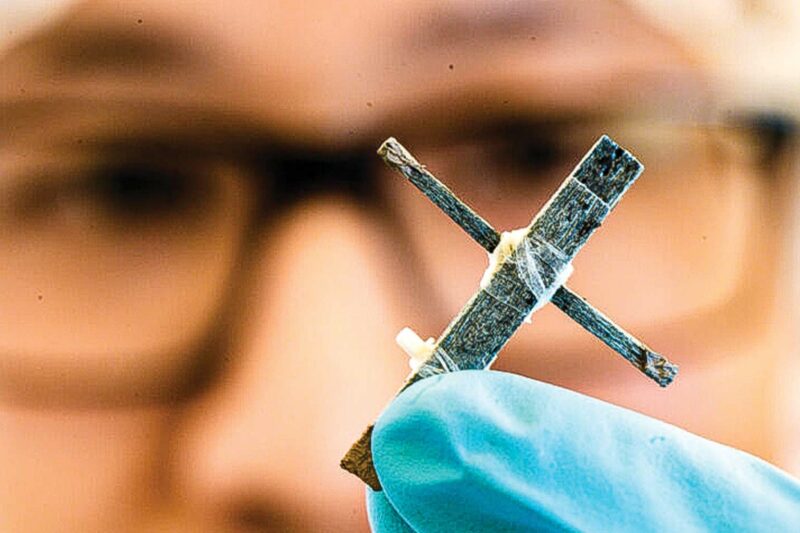

Scientists at the Linkoping University and the Royal Institute of Technology, Sweden, have created Timber, the first wooden transistor in the world that has the ability to regulate an electrical flow.

Scientists at the Linkoping University and the Royal Institute of Technology, Sweden, have created Timber, the first wooden transistor in the world that has the ability to regulate an electrical flow. Transistors are found in all electronic devices and are mostly made of silicon. Transistors are used to regulate or amplify electrical currents and voltages and can operate as a power switch.
Balsa, a grainless wood that is evenly structured, was used to make the device. Further, scientists made the block of wood electrically conductive by removing the lignin from the wood and filling the empty spaces with a conductive polymer or plastic called PEDOT:PSS. Though this transistor is slow, it can regulate the flow of electricity without deterioration and has a huge potential for development and applications in the future.
Did You Know?
Wood of the balsa tree is one of the lightest and strongest woods in the world and has a variety of applications including making craft items.





